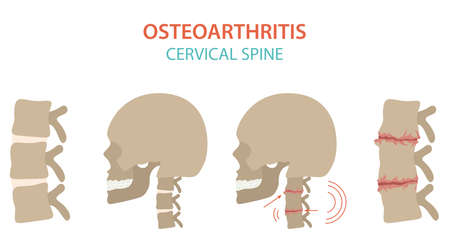Introduction to Ethical Practice in Non-Surgical Aesthetics
Non-surgical aesthetic treatments, such as dermal fillers, anti-wrinkle injections, and skin rejuvenation procedures, have experienced a remarkable surge in popularity across the UK in recent years. From high street clinics in London to boutique practices in smaller towns, more individuals than ever are seeking minimally invasive ways to enhance their appearance without the need for surgery. This trend is driven by shifting beauty standards, greater social acceptance, and advancements in technology that make these treatments accessible and appealing. However, with this rapid growth comes a pressing need for robust ethical considerations. As the sector expands, it becomes essential to ensure that practitioners uphold the highest standards of integrity, transparency, and patient care. Ethical practice is not simply about compliance; it is about fostering trust between practitioner and client, protecting vulnerable individuals from harm, and promoting informed decision-making. In this evolving landscape, understanding and prioritising ethics is the cornerstone of responsible non-surgical aesthetics in the UK.
2. Key Ethical Principles in the UK Context
In the evolving landscape of non-surgical aesthetics in the UK, practitioners are required to uphold a distinct set of ethical principles that safeguard both clients and professional standards. Understanding these core values is essential for fostering trust and ensuring safe practice. The four foundational pillars—patient autonomy, beneficence, non-maleficence, and professional integrity—serve as guiding lights for practitioners navigating complex decisions and interactions. Let’s explore how each principle is uniquely shaped by UK-specific governance and expectations.
Patient Autonomy
Respecting patient autonomy means recognising each individual’s right to make informed decisions about their own treatments. In the UK, this principle is reinforced by robust consent processes and transparent communication, as outlined by bodies such as the General Medical Council (GMC) and the Joint Council for Cosmetic Practitioners (JCCP). Practitioners must provide clear, unbiased information on risks, benefits, and alternatives so clients can actively participate in their care choices.
Beneficence and Non-Maleficence
Beneficence compels practitioners to act in the best interests of their patients, while non-maleficence emphasises the importance of ‘do no harm’. In the UK context, these values are reflected through strict adherence to clinical guidelines, ongoing training, and continuous professional development. Regulatory frameworks demand that every intervention is justified medically and ethically, with a focus on minimising harm and maximising positive outcomes.
Comparison of Core Ethical Principles
| Ethical Principle | Description | UK-Specific Guidance |
|---|---|---|
| Autonomy | Empowering patients to make informed choices | Mandatory comprehensive consent process (GMC/JCCP) |
| Beneficence | Promoting patient well-being | Evidence-based practice; regular CPD requirements |
| Non-Maleficence | Avoiding unnecessary harm or risk | Adherence to safety protocols; reporting adverse events (CQC/NHS) |
| Professional Integrity | Upholding honesty and transparency in practice | Abiding by codes of conduct; transparent advertising standards (ASA/CMA) |
Professional Integrity in Practice
The expectation of integrity within the UK aesthetic sector extends beyond technical competence. Practitioners must demonstrate honesty in all communications, avoid misleading claims, and maintain confidentiality at all times. Governing bodies such as the Advertising Standards Authority (ASA) and Competition & Markets Authority (CMA) closely regulate promotional materials to ensure accuracy and protect consumer rights.
A Culture of Accountability and Respect
The UK places a premium on accountability, requiring practitioners not only to comply with legal obligations but also to foster a culture of mutual respect between provider and patient. Upholding these ethical principles isn’t simply a matter of compliance—it’s an active commitment to elevating standards across the non-surgical aesthetics profession.

3. Understanding and Delivering Informed Consent
In the realm of non-surgical aesthetics within the UK, informed consent is far more than a signature on a form—it is the cornerstone of ethical practice and patient empowerment. To be considered valid in the UK, informed consent must be specific, voluntary, and based on a comprehensive understanding of the proposed procedure. Practitioners are legally and ethically obliged to ensure that clients are fully aware of the benefits, risks, alternatives, and potential outcomes before any treatment begins.
What Constitutes Valid Informed Consent?
A valid informed consent process involves more than simply listing potential side effects. It requires practitioners to communicate clearly in language that is accessible and appropriate for each individual client. Clients should have ample opportunity to ask questions and express concerns, with practitioners responding honestly and transparently. The conversation should cover not just what is likely to happen, but also rare complications, realistic expectations, aftercare requirements, and any financial commitments involved.
Common Challenges in Aesthetic Practice
Despite best intentions, challenges frequently arise in the delivery of informed consent within aesthetic medicine. Clients may feel pressured by social trends or advertising, leading them to rush decisions without adequate reflection. Time constraints in busy clinics can result in rushed consultations or overlooked details. Language barriers or health literacy issues may prevent clients from truly understanding what they are consenting to. Practitioners must remain vigilant to these obstacles and adapt their approach as needed—whether by using visual aids, offering written information to take home, or scheduling follow-up discussions.
The Importance of Clear and Honest Communication
Trust is built on honesty. By fostering a culture of open dialogue and transparency, practitioners not only protect themselves legally but also nurture long-term client relationships based on mutual respect. Taking the time to listen empathetically, explain patiently, and clarify misunderstandings demonstrates genuine care—a value that resonates deeply with British patients who appreciate thoroughness and integrity. Ultimately, delivering informed consent with clarity and compassion upholds the highest standards of ethics within the UK’s non-surgical aesthetics sector.
4. Legal and Regulatory Framework
Understanding the legal and regulatory landscape is essential for anyone engaging in non-surgical aesthetic procedures within the UK. This framework not only protects clients but also upholds the integrity of practitioners, ensuring that ethical standards and informed consent are at the heart of every treatment.
Key Laws and Regulations
The UK has a robust set of laws and guidelines governing non-surgical aesthetics. While the sector continues to evolve, practitioners must adhere to existing legal requirements as well as professional codes of conduct. The following table outlines some of the principal legislation and guidance affecting ethical practice and informed consent:
| Legislation/Guidance | Description | Relevance to Informed Consent |
|---|---|---|
| Health and Social Care Act 2008 | Regulates providers through the Care Quality Commission (CQC) | Ensures safety, quality, and transparency in patient care; some treatments require CQC registration |
| General Data Protection Regulation (GDPR) & Data Protection Act 2018 | Controls handling of personal data, including medical records | Requires explicit consent for storing and processing client information |
| Consumer Protection from Unfair Trading Regulations 2008 | Prohibits misleading advertising and aggressive sales practices | Makes accurate, honest communication with clients legally mandatory |
| Botulinum Toxin and Cosmetic Fillers (Children) Act 2021 | Bans cosmetic injectables for under-18s unless prescribed by a registered medical practitioner | Strengthens safeguarding and ensures appropriate consent procedures for minors |
| NHS England Guidelines & GMC Guidance | Sets out best practice for doctors providing cosmetic interventions | Emphasises thorough consultation, risk disclosure, and voluntary consent free from pressure |
The Role of Professional Bodies
A range of professional organisations set standards for non-surgical aesthetics in the UK. The General Medical Council (GMC), Nursing and Midwifery Council (NMC), Joint Council for Cosmetic Practitioners (JCCP), British Association of Aesthetic Plastic Surgeons (BAAPS), and British College of Aesthetic Medicine (BCAM) all play a part. These bodies offer guidance on best practice, promote ongoing education, and can investigate breaches in conduct. Registration with relevant professional bodies is often seen as a mark of commitment to ethical standards—including the diligent application of informed consent processes.
Professional Standards Authority (PSA)
The PSA accredits registers of healthcare practitioners who work in roles that are not regulated by law. This provides an extra layer of assurance for clients seeking safe, ethical aesthetic treatments.
Towards Continuous Improvement
The UK’s regulatory framework is dynamic—new laws are being proposed to further protect consumers as the aesthetics industry grows. Practitioners must remain vigilant about updates to both statutory requirements and professional guidelines, ensuring their approach to informed consent always reflects current best practice.
5. Cultural Sensitivities and Patient Expectations
In the UK, the landscape of non-surgical aesthetics is shaped not only by medical ethics but also by a rich tapestry of cultural backgrounds and values. Practitioners are called upon to recognise and respect these diverse perspectives, as every patient brings their own set of expectations and beliefs regarding beauty, ageing, and self-expression. Understanding these differences is essential for fostering trust and ensuring truly informed consent.
The British approach to communication is often characterised by politeness, understatement, and a respect for personal boundaries. This means practitioners must be attentive listeners, sensitive to unspoken concerns or reservations that patients may have about aesthetic treatments. It’s important to create a welcoming environment where individuals feel comfortable discussing their motivations without fear of judgement or pressure. By doing so, practitioners can better tailor their advice and recommendations to align with each patient’s unique background and needs.
Furthermore, ethical decision-making in the UK context demands an appreciation for the subtleties of local norms. For example, some patients may value discretion highly, preferring subtle enhancements over dramatic changes. Others might come from communities where attitudes towards cosmetic procedures are more conservative or even stigmatised. Navigating these nuances requires humility, empathy, and a willingness to educate patients about available options while always respecting their autonomy.
Ultimately, respecting cultural sensitivities goes hand-in-hand with upholding ethical standards in non-surgical aesthetics. By engaging in honest, open conversations and acknowledging the diversity of patient experiences, UK practitioners not only meet regulatory requirements but also empower individuals to make choices that genuinely reflect their values and aspirations.
6. Best Practices for Practitioners
Building trust and maintaining the highest ethical standards is essential for UK-based non-surgical aesthetics practitioners. Not only does this safeguard your reputation, but it also ensures clients feel respected, valued, and fully informed throughout their treatment journey. Below are practical steps you can take to champion ethical practice and nurture long-term client relationships.
Commit to Transparent Communication
Begin every client interaction with honesty. Clearly outline the benefits, risks, alternatives, and limitations of each procedure, using accessible language free from jargon. Encourage questions and provide space for clients to voice concerns—this demonstrates respect and positions you as a caring expert who prioritises their wellbeing.
Prioritise Comprehensive Informed Consent
Informed consent must be more than a signature on a form. Take time to ensure your clients fully understand the proposed treatments. Discuss potential side effects, realistic outcomes, aftercare expectations, and costs upfront. Remember that consent is an ongoing process; check in with clients regularly, especially if their treatment plan evolves.
Foster a Culture of Continuing Professional Development
The UK aesthetics landscape is ever-evolving. Stay abreast of the latest clinical guidance, legal requirements, and best practice frameworks by participating in regular training and networking with peers. This commitment underpins your professional integrity and reassures clients of your competence.
Respect Client Autonomy at Every Stage
Empower your clients to make decisions about their appearance without pressure or persuasion. Offer balanced advice that considers both the physical and psychological aspects of aesthetic treatments. If you have any doubts regarding a client’s motivations or mental health, don’t hesitate to signpost them to appropriate support services—this shows true care beyond the commercial aspect.
Maintain Rigorous Documentation
Diligent record-keeping protects both you and your clients. Keep detailed notes on consultations, consent discussions, and treatment plans, ensuring data privacy in line with UK GDPR requirements. Transparent documentation enhances accountability and provides clarity should any concerns arise post-treatment.
Create a Welcoming, Inclusive Environment
A respectful clinic culture is foundational to ethical practice. Ensure your team is trained in equality, diversity, and inclusivity so that every client feels safe and supported regardless of background or identity. Small gestures—a friendly greeting or a private consultation space—can make a significant difference in how clients experience their aesthetic journey.
By embedding these best practices into daily operations, UK practitioners not only meet regulatory expectations but also inspire confidence and loyalty among their clientele. Upholding these standards isn’t just good ethics—it’s the cornerstone of lasting success in the non-surgical aesthetics field.


